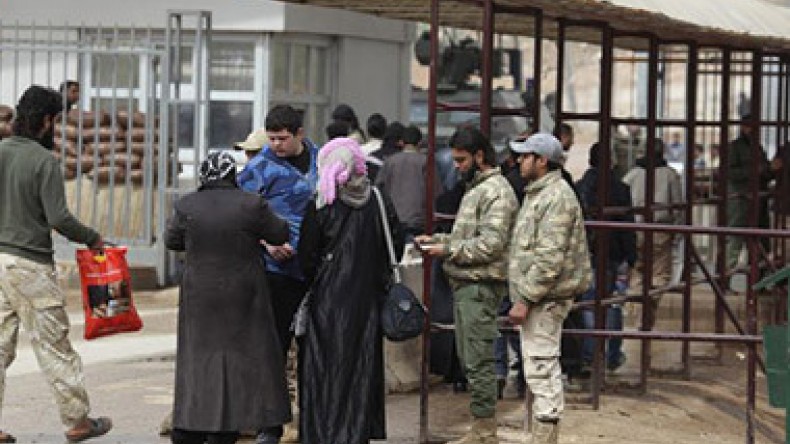
Turkey's Syria border plan, a trick - Webster Tarpley
Press TV has conducted an interview with Dr. Webster Griffin Tarpley, an author and historian, from Washington, to discuss the situation in Syria.
Press TV: The idea of Turkey setting up a buffer zone with its border with Syria, this has not been raised for the first time right now. We’ve seen calls for it being made earlier with the Syrian crisis as well. What do you make of it? Do you think it’s a prudent course of action?
Tarpley: I think it smells more like a trick. It’s an insidious trick, I think, cooked up by Erdogan on his trip to Qatar. We have to remember that when it comes to funding terrorists and extremists, Qatar of course plays a leading role.
As you’ve mentioned, Erdogan and Turkey, unfortunately, have allowed their southern border to become a paradise for terrorists in a sense that they can come and go freely. You remember about a year ago some terrorists operating into Syria were trapped with sarin chemical weapon in a hotel in southern Turkey? This is a very dirty story.
I would look for first of all at the Qatar Foreign Minister, Attiyah, who gave a big interview to the Financial Times today, where he said first of all that Qatar does not fund ISIS and similar terrorist groups. Well, everybody knows that’s simply not true.
Then Attiyah went on to say we’ve also got to make sure that the anti-Assad moderate rebels inside Syria get plenty of weapons and money and so forth. Of course, there are no moderate rebels inside Syria in the anti-Assad mode.
It seems to me that this is an attempt to somehow blur the border. What needs to be done with that border is it has to become a bright line border. In order words, close it, in effect. Don’t let ISIS come and go. Don’t let them sell oil. Don’t let the Saudis and Qatar and others pour weapons, munitions and supplies into southern Turkey and then have that get across the border.
There’s an offer on the table from Syria in particular, from Foreign Minister Moallem and his deputy Mekdad, who repeated it for NBC News a couple of days ago, that Syria is willing to work with any nation in a good faith effort against terrorism. There should be coordination. If you’re going to help anybody, you should be helping Syria.
Of course, we’ve got this conference going on in Paris today, which is grotesque in a sense, that the two main reliable opponents of ISIS are Syria and Iran – maybe I ought to say three because Hezbollah, by their experience inside Syria, has also qualified as a very reliable and capable opponent of people like ISIS. Never-the-less, these are the countries that were excluded.
We have this Orwellian situation where Kerry goes around saying ISIS is the end of the world – and there is something in that direction – but then he says even though it’s the end of the world we can’t ever cooperate with Syria or Iran to deal with them. I think this is a very bad idea.
Press TV: I’d like to pick up on a point you just made regarding the blurring of borders between Turkey and Syria. Would you like to elaborate a bit more as to what ends is that meant to achieve especially considering it is obviously going to include taking over some Syrian territory?
Tarpley: Yes, and if that’s really what they have in mind, in other words if they’re saying let’s carve a zone out of Syria, well that’s a recipe for war.
What I’m trying to point to is this Attiyah statement together with the Erdogan statement seemed to point to the idea of some kind of judo-ing. In other words, to say that the US and NATO - well we know you want to do something against ISIS but they’re trying to redirect it against Syria, that’s what Attiyah says. He says don’t worry about ISIS really, you should be fighting Assad.
Carving territory out of Syria, of course that’s really an act of war. That would force a terrible situation.
I think these are two desperate regimes that are seeing their game of backing terrorism and supporting terrorism, this game is collapsing in front of them. I think this has to be rejected as a very crude kind of trick.
Newsfeed
Videos






























